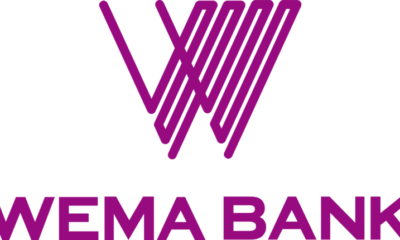Cover
From Lagos to Athens: Why Nigerians Are Turning to Greece for Property and Residency
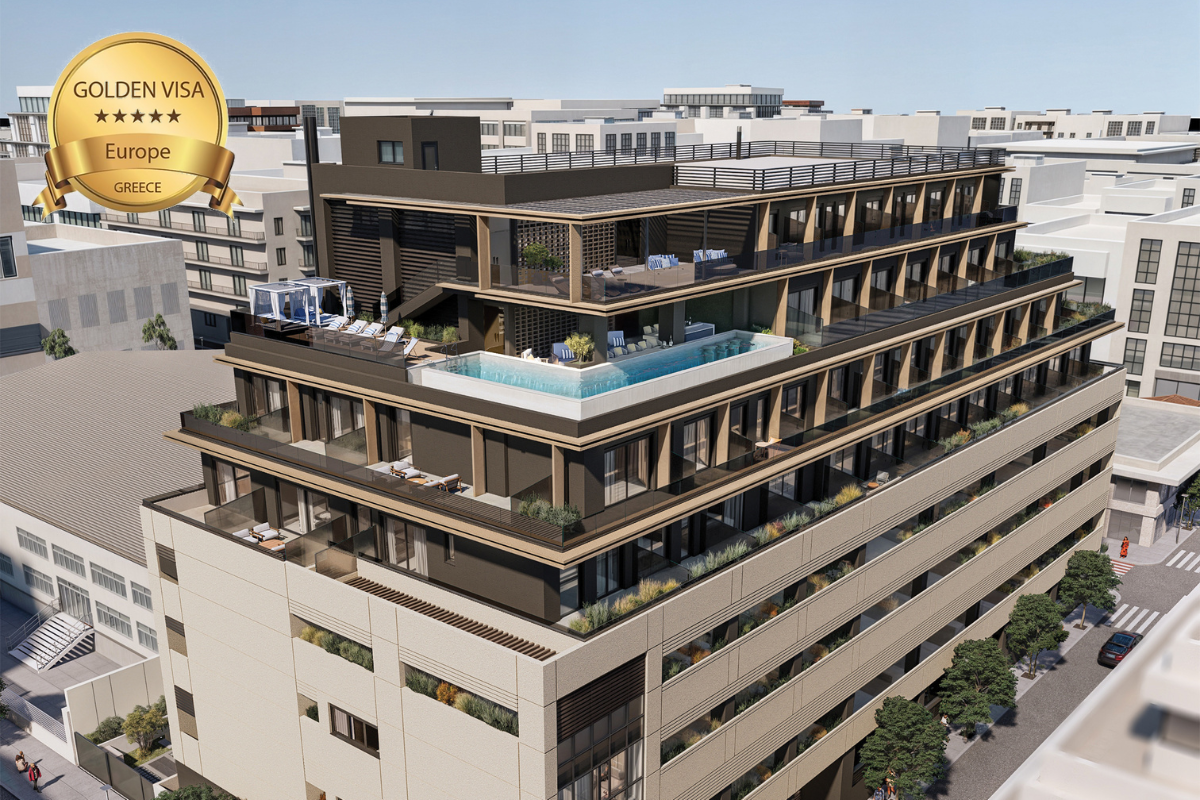
For decades, international property buyers from Nigeria turned to London, Toronto, and New York as the default destinations for investment and residency. That trend is shifting. With average home prices in these cities now well above £500,000, CAD $1 million, and USD $1.2 million respectively, many Nigerians are being priced out.Increasingly, attention is moving toward Greece, where property entry begins at €250,000 under its Golden Visa programme. The combination of lower costs, a recovering housing market, and a direct path to European Union (EU) residency is drawing investors who once looked only to North America or the UK.Greece Offers Currency Security and European Union (EU) StabilityProperty in Greece is not just priced in euros; the wider stability of the European Union anchors it. The euro remains one of the world’s most trusted currencies, offering Nigerians a hedge against naira volatility while providing a tangible, income-generating asset for securing wealth.The country’s EU membership also adds layers of reassurance: transparent legal frameworks, consistent regulations, and steady economic performance. The Bank of Greece projects GDP growth of 2.3% in both 2024 and 2025, underscoring confidence in its ongoing recovery.By comparison, traditional destinations like the UK and US demand multimillion-dollar commitments tied to complex visa rules, while Canada and Australia rely on points-based systems or entrepreneurship routes. Greece provides a more accessible entry point while delivering the same global credibility.Lifestyle Meets InvestmentFor investors, wealth preservation is only one part of the equation. There is also the draw of lifestyle. Greece is attracting families not just for its stability but for its quality of life. The country offers a standard of living that rivals Western Europe, and at a fraction of the cost.At the centre of this appeal is Greece’s Golden Visa programme. With a minimum property investment of €250,000, Nigerians can secure residency not only for themselves but also for their spouses and children. The visa grants the right to live, study, and work in Greece as well as visa-free travel across the Schengen Zone. After seven years of continuous residency, citizenship becomes a possibility, opening doors to EU passports and transformative global mobility.A Market Positioned for GrowthGreece’s real estate sector is way past recovery mode, and it is expanding. According to data from the Bank of Greece, for 2024 as a whole, prices increased on average by 8.5% in Athens, indicating continued growth, buoyed by record-breaking tourism in 2024. Short-term rentals continue to be in high demand, yielding strong returns.For investors from Nigeria, the benefits are clear: rental yields in Athens typically average between 4 and 5%; property is internationally marketable, making resale simpler than in many African markets. And under the current regulations, new-build properties remain exempt from the 24% VAT, significantly reducing upfront costs for buyers. These factors combine to create a market that is both poised for growth and reliable.Greece vs. Other Popular AlternativesWhen Nigerians consider investing or relocating abroad, a handful of destinations typically top their list. A closer look, however, reveals why Greece is emerging as a smarter option.United Kingdom: London remains a hub for education and business, but investor visas now require capital commitments of over £2 million, and the property-for-residency pathway has been closed for years. Living costs are among the highest in the world.United States: The EB-5 investor visa requires a minimum investment of $800,000 in job-creating projects, often accompanied by lengthy wait times and complex requirements. Greece’s property threshold is lower and has faster timelines.Canada: Though popular for its quality of life, Canada has no property-to-residency route. Immigration is typically through skilled or study pathways, with no guarantee of permanent settlement.Dubai: Proximity and familiarity make it attractive, but property-linked residency does not lead to citizenship. Greece, in contrast, combines residency with a clear route to long-term security in the EU.Safe Investments, No ScamsOne of the biggest hurdles for Nigerians investing abroad has been a lack of trust. Stories abound of buyers losing money to fraudulent intermediaries or unclear property titles. That climate of risk has often deterred otherwise willing investors.This is where specialist firms are changing the game. Companies like MIBS Group, a leading real estate developer in Greece with over 40 years of experience and profound knowledge of Golden Visa requirements, have built a reputation for guiding African investors through the process end-to-end—from investment analysis and property acquisition to Golden Visa applications and rental management. For Nigerians, that means peace of mind: a chance to invest abroad without fear of scams, backed by experts who understand both the Greek market and the concerns of African investors.In the final analysis, Greece’s transformation from a holiday destination to a serious investment hub has not gone unnoticed. For Nigerians, it offers something rare: affordability, stability, lifestyle, and the promise of global mobility. Where other countries globally raise the bar with high entry costs or complex visa systems, Greece keeps the door open with a clear, structured path tied directly to real estate.For families and entrepreneurs weighing their next move, the choice is no longer limited to London or Toronto. Increasingly, Athens, Piraeus, or Crete are part of the conversation. And with partners like MIBS Group providing high-end properties and trusted guidance, Nigerians can step into Greece’s property market with confidence, turning euros into both security and opportunity for generations to come.
Cover
How Primate Ayodele Foretold the Death of Raila Odinga In December 2024
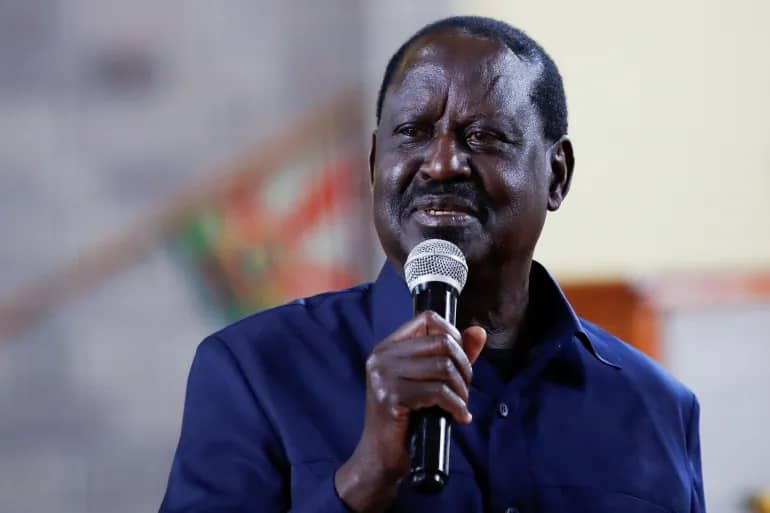
Raila Odinga, former Kenyan Prime Minister, has died at the age of 80, family sources have confirmed.
Odinga died on Wednesday while receiving medical treatment at a hospital in India. Indian police told the AFP news agency that he was walking with family members and a personal doctor “when he suddenly collapsed”.
He was rushed to a nearby hospital, where he was declared dead.
This is in confirmation of the prophecy of Nigerian prophet, Primate Elijah Ayodele, which he shared on the 22nd of December, 2024, at the presentation of his prophecies for 2025.
The prophecies presented in a 90-page document featured several warnings to countries, personalities, politicians, government organisations, and corporate organisations, to mention but a few.
In his prophecy to Kenya, the prophet stated that the country will lose a prominent politician. He also noted that he foresaw the country’s flag flying at half mast, indicating the relevance of the politician.
These were his words:
“KENYA: The president will take some steps that will boomerang, which can cause another unrest in the country. The President will borrow funds. The youth will go on a protest against the policies of the President. Honorables members in Kenya will escape attacks and assassinations. There will be climatic problems in Kenya. Opposition will rise against the President. Two governors will face impeachment. The sincere efforts of the President will be frustrated. Pray against the death of a prominent politician in Kenya as I foresee that the country will fly his flag at half mast.”
No doubt, this has been fulfilled.
Cover
Primate Ayodele and World Cup Qualifier: Who Says Football Isn’t Spiritual?
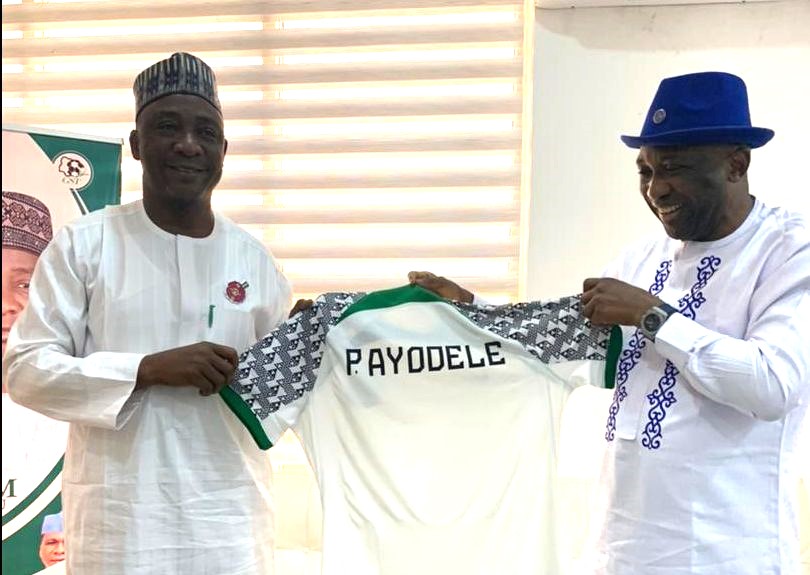
By Aluwe Oduntan
One of the most frequent arguments surrounding Primate Ayodele’s prophecies about sports—especially football—is that the subject isn’t spiritual and that God isn’t interested in it. Many people perceive God as “too serious” to be concerned with football.
What many don’t realize is that football, which they see merely as a game, is actually a means of survival for thousands of people. It’s someone else’s profession, and several players engage in spirituality—either through God or other deities—just to ensure a flourishing career.
Several clubs and countries perform rituals with their players at the beginning of each season or tournament to ensure good outings. Yet, when it comes to God or prophecies concerning sports or football, people often find it hard to admit that God is fully involved and interested.
However, regardless of what anyone thinks, the ongoing World Cup qualifiers—particularly the fate of the Nigerian Super Eagles—have once again confirmed that God is interested in everything that concerns humanity, including football.
This was made evident through the spiritual intervention of Primate Ayodele, whose divine guidance has helped restore hope to the Nigerian Super Eagles even when it seemed the team’s chances of qualifying were slim.
When the going was tough some months ago, Primate Ayodele was the voice that gave direction to the NFF team on what to do to qualify. He assured them that the team could still make it and gave three spiritual directions—some of which proved helpful.
He warned against fielding William Troost-Ekong in the remaining qualifier matches in August and advised that a replacement should be found for goalkeeper Stanley Nwabali. He stated clearly that nothing would stop the team from qualifying except disobedience to divine instructions.
These were his words:
“There is nothing stopping Nigeria from going to the World Cup, except they don’t listen. There are three things they need to do:
First, captain William Troost-Ekong should not lead the team in the remaining qualifiers.
Second, an alternative goalkeeper to Stanley Nwabali must be put in place.
Third, they must find another quality striker like Victor Osimhen and bring in five new Nigerian players into the squad.”
It would be recalled that during Nigeria’s qualifier match against South Africa, William Ekong’s own goal shattered Nigeria’s hope of securing a win, affecting the team’s chances of automatic qualification. Likewise, Nwabali’s errors almost cost the team its victory during the match against Lesotho weeks ago—just as Primate Ayodele had earlier warned.
Before the match against Benin Republic, the Super Eagles coach and the NFF heeded the prophet’s warning about not fielding Troost-Ekong, and the result was remarkable. The team defeated Benin Republic 4–0, marking Nigeria’s biggest victory so far.
Interestingly, before that match, Primate Ayodele led his church members in prayers for the Super Eagles during a service held at his Lagos church. The prophet once again emphasized his warning about the two players—especially William Ekong—and the outcome spoke for itself. Who then says football isn’t spiritual?
It is also noteworthy that the NFF President, Ibrahim Gusau, since assuming office, has recognized that football is spiritual. Despite being a Muslim, he listens to Primate Ayodele’s prophetic warnings. He has often credited his emergence as NFF president to the prophet’s ministry because, even before he decided to contest, Primate Ayodele had been speaking about him without any prior acquaintance.
Therefore, for those still doubting whether football is indeed spiritual, they should understand that it goes beyond physical activity. God is involved in every aspect of human life, and since football is a legitimate means of livelihood, it is certainly no exception.
Cover
Pivot Nigeria 2025: ‘Reframing the Lens’ Inspires A Positive National Narrative
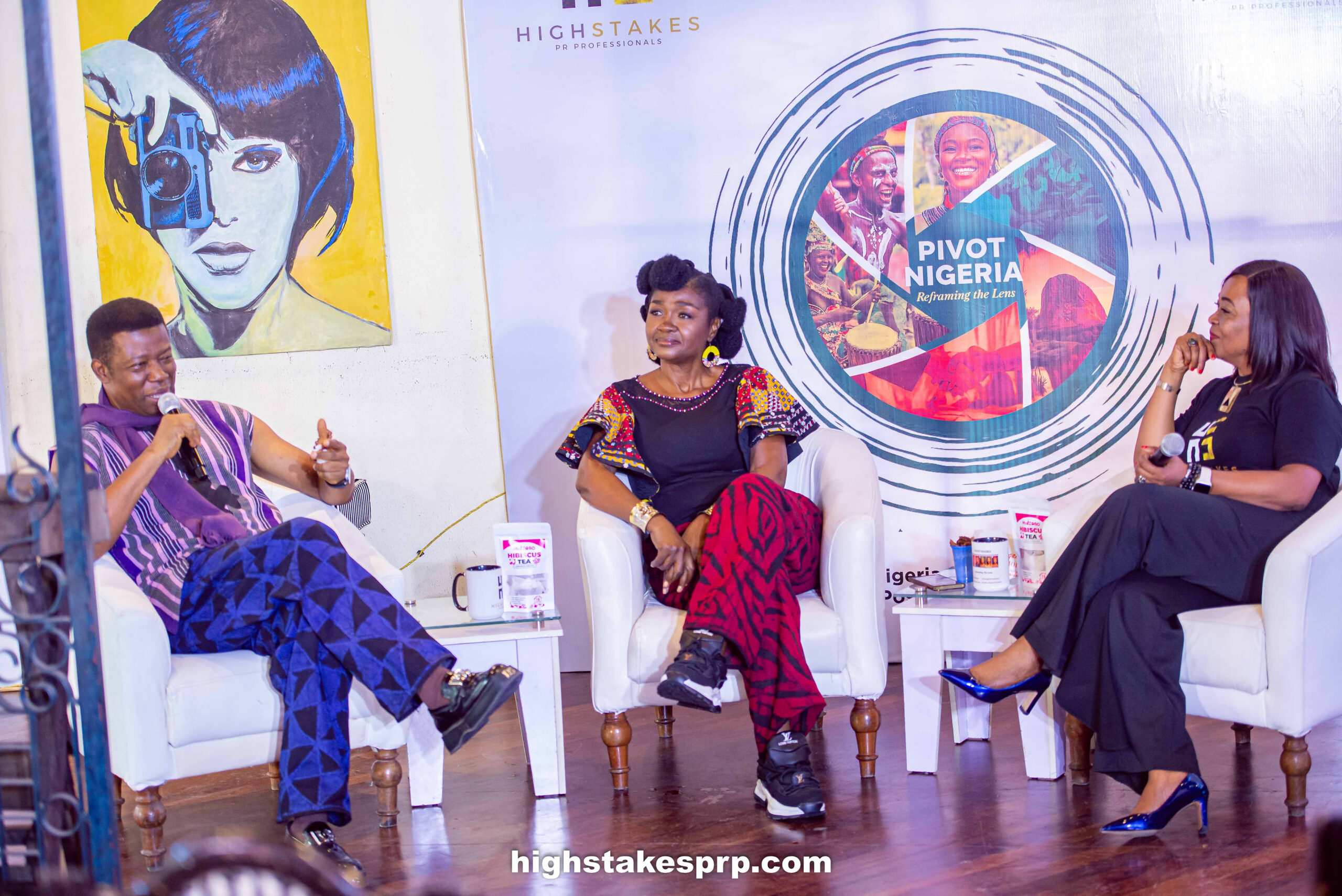
Lagos, Nigeria — October 7, 2025 — Pivot Nigeria: Reframing the Lens is a national thought-
leadership platform created to reset Nigeria’s reputation agenda. Powered by HighStakes Public
Relations Professionals (HighStakes PR Professionals), Pivot Nigeria catalyses dialogue to inspire
pride, amplify authentic narratives, and co-create a stronger, more balanced Nigeria narrative.
The inaugural Pivot Nigeria Conference held recently, brought together thought leaders, innovators,
journalists, entrepreneurs and youth to emphasize the urgent need for Nigerians to own and shape
Nigeria’s narrative. The conference blended high-impact keynotes, panels and hands-on co-creation
labs to inspire action.
Urging attendees to become ambassadors of truth and optimism for Nigeria, Pivot Nigeria convener,
Victoria Uwadoka-Anyianuka set the tone: “We are not here to complain or to lament; we are here to
reframe the lens on how we see ourselves as Nigerians. Changing how others see us starts with how
we present and represent ourselves. Our mission is to challenge the prevailing narratives, to spotlight
authentic stories, and to co-create a narrative that reflects Nigeria’s true story.”
The conviction that Nigerians must first change how they see themselves before looking for external
validation echoed throughout the day, from the keynote and plenary sessions to the co-creation labs.
The conference focused on culture as capital, who tells our story and why it matters, reconciling
criticism with commitment, and the role of the media in changing the narrative.
Mr. Richard Mofe-Damijo, Nigerian actor, lawyer, filmmaker, and cultural icon popularly known as
RMD spoke about the paradoxes of Nigeria: “Nigeria is a beautiful country. It is a great country. On
the one hand, it can frustrate you to the point where you feel like ‘I’m getting out.’ But on the other
hand, it can give you so much that you’ll be wondering why it took you so long to unlock the keys
that give you entrance to the bountiful opportunities that you find in Nigeria.”
He added that Nigeria, as a country, needs to go back to the drawing board, to see who we are, “It is
when you have articulated who you are that your people can see.”
On his part, Mr. Emeka Mba, Founder and CEO of AfiaTV said, “Who tells your story and how it is
told is often how you are seen. Too often, our stories are told by outsiders. Building inclusive national
narratives, consistent cultural diplomacy, and deliberate policies to rebuild trust are essential to shaping
how the world perceives us. If you look at emerging news platforms like AfiaTV and News Central,
there is a deliberate editorial direction, a recognition of the power the media wields, and the duty it
has to project balanced, accurate, and responsible portrayals of Nigeria, particularly to international
audiences.”
Speaking in the same vein, Rosemary Egabor-Afolahan, Director, Commercial and Communications,
News Central TV said, “The story of Nigeria, in all its complexity, courage and brilliance, must no
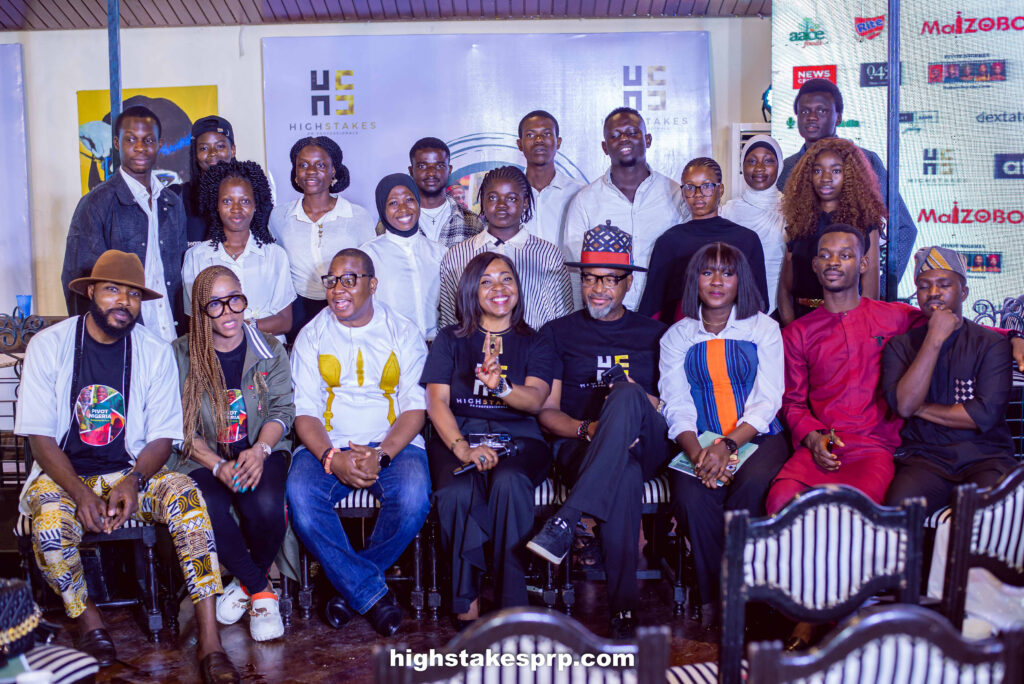
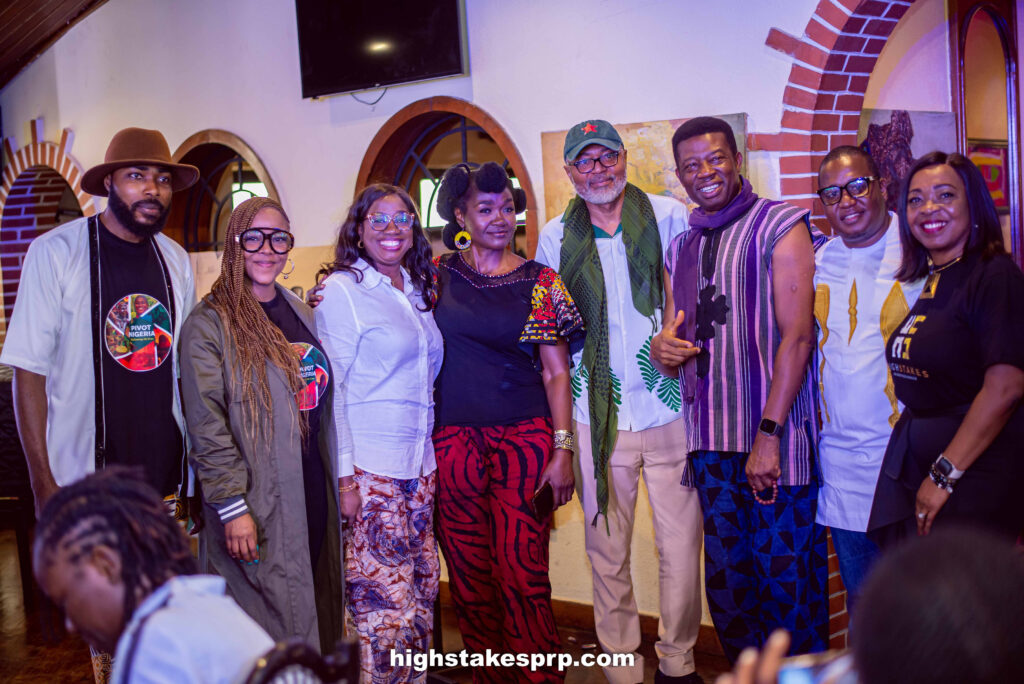
longer be told by others, through filters of fear or foreign bias. It must be told by us: boldly,
responsibly, and completely. For far too long, the image reflected of Nigeria has been distorted,
reduced to the cliches of conflict, corruption, disease, and despair.”
Emphasizing the critical role of the media in changing the narrative, Rosemary added, “At News
Central TV, we took a stand. We chose to change the narrative not by ignoring the challenges, but by
contextualizing them, by highlighting progress alongside problems, and most importantly, by
amplifying voices that are too often silenced and overlooked.”
Pivot Nigeria conference participants converted ideas into action in the co-creation labs and proffered
solutions: reclaim Nigeria’s story through citizen action; promote balanced, indigenous storytelling;
embed civic education and national values in school curricula; leverage creative industries (film, music,
fashion, tech) as soft-power engines; push for stronger accountability in governance; and scale Pivot
Nigeria through campus ambassadors and community chapters to sustain awareness about the
currency of reputation as capital.
Nneka Isaac-Moses, Meche Isaac-Moses, Nina Anyianuka, Temitope Aina, and Nneamaka Nwadei
highlighted narrative power as a tool of diplomacy, trade, and cohesion, urging collective action by
the media and all stakeholders to reclaim the Nigeria story.
The “Pivot Nigeria: Reframing the Lens” initiative is a call for citizens, creatives, media houses,
government institutions, the private sector and the diaspora to interrogate and reframe their
presentation and representation of Nigeria, and to use their everyday platforms (including social
media) responsibly to reflect a balanced, authentic Nigeria narrative.






